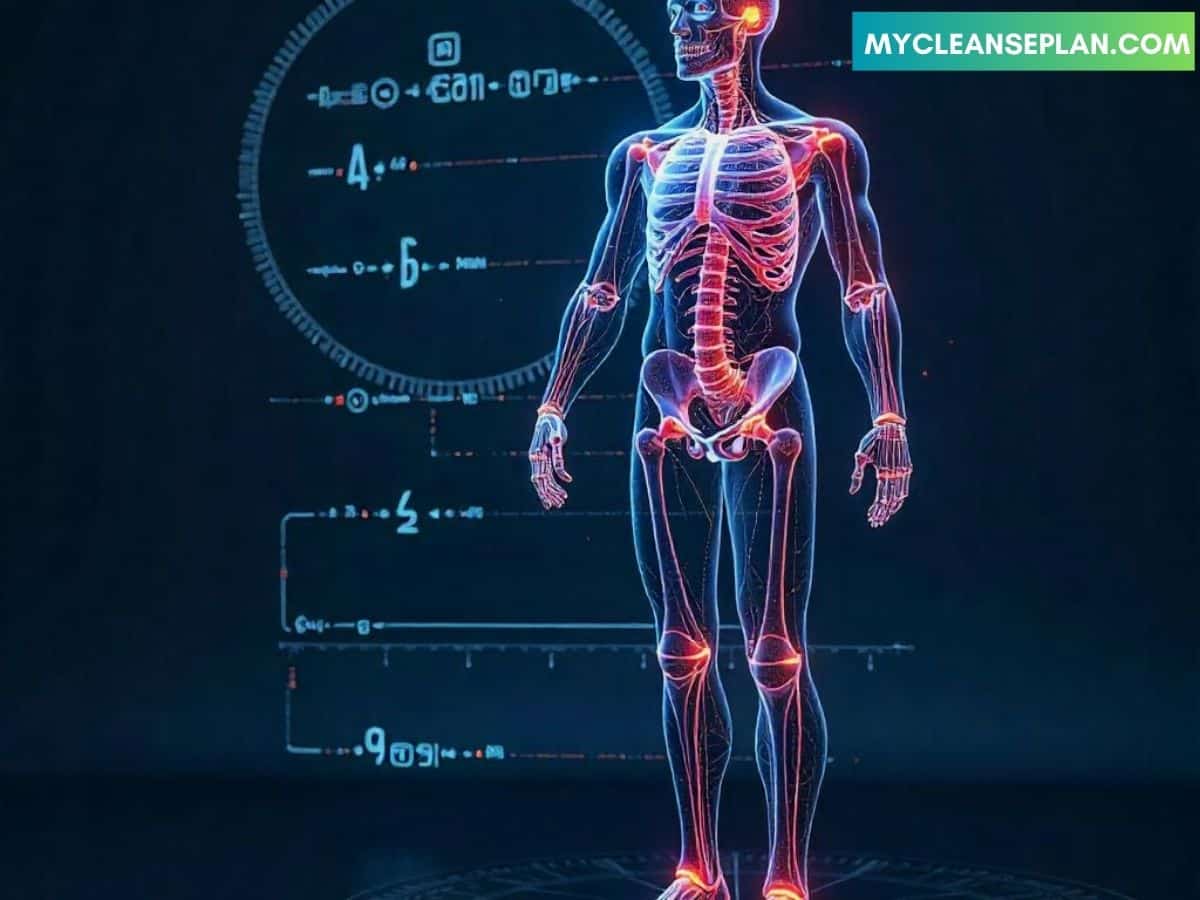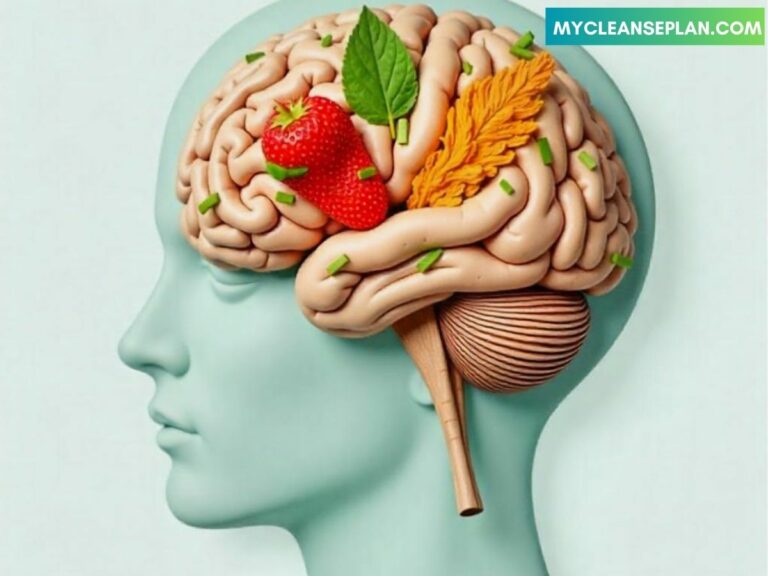AI & Personalized Health: What You Need to Know
Exploring healthcare, I see how artificial intelligence is changing our approach to health. AI in healthcare is more than a trend. It’s a big step towards personalized health solutions.
AI in healthcare brings us closer to tailored treatments and accurate diagnoses. This article will dive into AI’s role in healthcare, its uses, and what it means for medicine’s future.
Key Takeaways

The Evolution of Healthcare: From One-Size-Fits-All to Personalized Approaches
Healthcare is changing fast, moving away from the old one-size-fits-all model. This change is because we need treatments that really work for each person.

Traditional Healthcare Limitations
Old healthcare often uses a generic plan that doesn’t work for everyone. It doesn’t consider things like genetics, lifestyle, and environment. So, patients might not get the care they really need.
The old healthcare model can’t handle the unique needs of each patient.
https://gigasecurehome.com/nest-doorbell-offline-but-wifi-working
The Shift Toward Personalization
New technology, like AI and data analytics, is leading the way to personalized care. These tools help doctors make plans that fit each patient’s unique situation.
“The future of healthcare is personalized, predictive, and preventive.”
— Eric Topol, Author of “The Patient Will See You Now”
Personalized medicine is showing great promise. It aims to meet each patient’s specific health needs.
The Role of Technology in Healthcare Transformation
Technology is key in changing healthcare. It gives us the tools and data for personalized care. AI, wearable health monitors, and advanced analytics are some examples of how tech is making a difference.
| Technology | Application in Healthcare | Benefit |
|---|---|---|
| AI-Powered Diagnostics | Analyzing medical images and patient data | Improved accuracy in diagnosis |
| Wearable Health Monitors | Tracking vital signs and health metrics | Real-time health monitoring |
| Advanced Data Analytics | Analyzing patient data and medical histories | Personalized treatment plans |

Understanding AI & Personalized Health: What You Need to Know
AI is changing healthcare in big ways. It’s making medical treatment and patient care better. Knowing about AI in health is key for the future of medicine.
Defining Artificial Intelligence in Healthcare
AI in healthcare uses smart algorithms and machine learning. It looks at medical data, finds patterns, and makes suggestions.
AI is changing healthcare by making diagnoses better, making work easier, and tailoring care to each patient.
How AI Enables Personalized Medicine
AI makes personalized medicine possible. It looks at health data, like medical history and genetics. This helps doctors give treatments that fit each person’s needs.
Machine Learning Algorithms and Health Data
Machine learning is key for analyzing health data. It finds trends and predicts outcomes. It can handle big data, like genetic info and medical images.
Neural Networks and Pattern Recognition
Neural networks are great at finding patterns in data. They help spot diseases early and accurately. They find things that humans might miss.
https://gigasecurehome.com/how-long-does-nest-doorbell-battery-last
Key Technologies Driving the Revolution
Several technologies are leading the health revolution. These include advanced genomics, wearable devices, and data analytics tools.

| Technology | Application in Personalized Health |
|---|---|
| Machine Learning | Analyzing health data for personalized treatment plans |
| Neural Networks | Pattern recognition in medical imaging and diagnostics |
| Wearable Devices | Monitoring patient health in real-time |
As we use these technologies more, AI’s role in health will grow. This means healthcare will be more precise, accessible, and effective in the future.
How AI Transforms Medical Diagnostics and Treatment
AI is changing medical diagnostics and treatment, making healthcare better and more personal. This change is key in personalized healthcare, where AI helps give patients the best care.
AI-Powered Diagnostic Tools
AI tools are changing how we find and diagnose diseases. They use smart algorithms to look at medical data, helping doctors make more accurate diagnoses.
Medical Imaging Analysis
AI helps with medical imaging by spotting patterns doctors might miss. This leads to quicker and more accurate diagnoses, like for cancer.
Laboratory Test Interpretation
AI quickly goes through lab test results, finding oddities and possible diagnoses. This speeds up diagnosis and helps doctors act fast.
Precision Medicine and Treatment Selection
Precision medicine means treatments fit each patient’s unique needs. AI helps by looking at genetic data, medical history, and lifestyle to suggest the best treatments.
Key benefits of precision medicine include:
- More effective treatment outcomes
- Reduced risk of adverse reactions
- Personalized healthcare strategies
| Treatment Aspect | Traditional Approach | AI-Driven Precision Medicine |
|---|---|---|
| Diagnosis Accuracy | Dependent on clinician expertise | Enhanced by AI algorithms |
| Treatment Planning | Generalized treatment protocols | Personalized treatment based on individual data |
| Outcome Monitoring | Periodic assessment | Continuous monitoring and adjustment |
Monitoring and Adjusting Treatment Plans
AI keeps helping after diagnosis and treatment plans are set. It watches patient data to see if treatment needs to change, ensuring patients get the best care.

As AI gets better, it will keep improving medical diagnostics and treatment. This will lead to even better personalized healthcare, improving care quality and patient results.
Personal Health Monitoring: AI at Your Fingertips
AI has changed how we monitor our health, giving us new insights and control. Now, we can track our health better and make smarter choices.
Wearable Technologies and Health Tracking
Wearable devices are now key for tracking health. These AI-powered gadgets can keep an eye on many health signs, from heart rate to more detailed health markers.
Fitness Trackers and Smartwatches
Fitness trackers and smartwatches are everywhere. They track heart rate, steps taken, and calories burned.
They give valuable data to those who love fitness. Some even watch sleep patterns and guide breathing.
Continuous Glucose Monitors and Other Medical Wearables
Continuous glucose monitors are a big step for diabetes care, showing glucose levels in real-time.
Other medical wearables watch vital signs and spot issues early. They’re key for managing long-term health and avoiding big problems.
Smart Home Health Devices
Smart home health devices are part of AI in health monitoring. They check health at home, making things easier and more accessible. Think smart blood pressure monitors and smart scales for weight and body shape.
Mobile Health Applications and AI Assistants
Mobile health apps and AI assistants give personalized health tips and tracking. They use your data to suggest what’s best for you.
Some apps even send medication reminders and help schedule appointments, making health care easier.

Using these AI tools, we can be more active and informed about our health. This is a big step towards health care that’s preventive and tailored to each person.
Predictive Analytics: Preventing Disease Before It Starts
Predictive analytics is changing how we prevent diseases. It looks at lots of data to find people at risk. This lets doctors act early.
Risk Assessment and Early Warning Systems
Predictive analytics helps doctors see who might get sick. It does this by analyzing data deeply. This includes:
- Looking at genes to see if someone might get certain diseases
- Checking how someone lives to see if it could cause health problems
Genetic Predisposition Analysis
Genetic analysis looks at a person’s genes to find health risks. It helps make personalized prevention plans.
Behavioral Pattern Recognition
Behavioral analysis looks at how someone lives to guess health risks. It checks things like diet, exercise, and sleep.
Lifestyle Recommendations Based on Personal Data
After finding risks, predictive analytics gives personalized lifestyle tips. These might be about eating better, exercising, or managing stress.

The Impact of Preventive AI on Public Health
Predictive analytics in healthcare could greatly help public health. It could lower the number of preventable diseases. This could make people healthier and save money on healthcare.
By using healthcare technology, we can focus more on preventing sickness. This is better than just treating it after it happens.
My Experience with Personalized Healthcare Solutions
My journey with personalized healthcare has been truly groundbreaking. It’s all thanks to AI and machine learning in health. I’ve seen how personalized care can change lives for the better.

How I Use AI-Powered Health Tools
I use AI-powered health tools every day. Wearable devices track my health, and mobile apps give me advice based on my data. These tools make managing my health easy and effective.
These tools are great because they watch my health all the time. They catch problems early, so I can fix them before they get worse.
The Difference Personalization Has Made in My Health Journey
Switching to personalized healthcare solutions has changed my life. It’s tailored to me, not just my health problems. This has made me feel much better overall.
A healthcare expert once said, “The future of healthcare is personal.” This is true for me. Personalized care has made me more involved in my health.
In short, personalized healthcare has been amazing for me. AI and machine learning have made my health care more proactive and tailored to me.
Ethical Considerations and Privacy Concerns
AI in personalized health brings up big questions about data safety, bias, and patient rights. As we use AI & Personalized Health more, we must tackle these issues. This ensures everyone gets the benefits.
Data Security in the Age of Personalized Health
Data security is key with more healthcare tech. We must protect patient data from hackers and unauthorized access. This means using strong encryption, secure storage, and strict access rules.
Addressing Algorithmic Bias in Healthcare AI
AI in healthcare can have biases, leading to wrong diagnoses or treatments for some. To fix this, we need:
- Training data that shows all kinds of patients and health issues.
- AI to be open about how it makes decisions.
Ensuring Diverse Training Data
Having diverse training data helps AI systems learn about different patients. This reduces bias. We need data from many sources that shows the whole population.
Transparency in AI Decision-Making
It’s important for AI to be open about its decisions. This builds trust and accountability. Knowing how AI makes choices helps healthcare providers check its accuracy.
Balancing Innovation with Patient Rights
We must also balance AI innovation with protecting patient rights. This means keeping patient privacy, getting their consent, and designing AI with ethics in mind.

By tackling these ethical and privacy issues, we can use AI in healthcare fully. And we can do it while keeping patient interests safe.
The Future Landscape of AI and Personalized Healthcare
As we look ahead, AI is set to change healthcare in big ways. It will make personalized medicine even better. New technologies are coming that will help make treatment plans more tailored to each person.
Emerging Technologies on the Horizon
AI’s future in healthcare is linked to new tech like quantum computing and advanced robotics.
Quantum Computing and Healthcare
Quantum computing can handle huge amounts of health data fast. This could lead to new ways to understand and treat diseases.
Advanced Robotics and Nanotechnology
Robots and nanotechnology will change healthcare by making treatments more precise. They will help make treatments more personal.
Integration Challenges and Solutions
But, there are hurdles to overcome before we can use these new techs. We need to worry about keeping data safe and making sure everyone follows the same rules.
| Challenge | Solution |
|---|---|
| Data Security | Implement robust encryption methods |
| Standardization | Develop industry-wide protocols |
How Patients and Providers Can Prepare
Patients and doctors can get ready for AI in healthcare by keeping up with new tech. They should learn how to use these tools well.
“The future of healthcare lies in its ability to personalize treatment. AI is the key to unlocking this.”
Dr. Jane Smith, AI Healthcare Expert
By welcoming these changes, we can make healthcare more personal and effective for everyone.

FAQ Of AI & Personalized Health: What You Need to Know
What is AI & Personalized Health, and how does it work?
AI & Personalized Health uses artificial intelligence to analyze health data. It offers tailored healthcare solutions based on individual needs.
How does AI enable personalized medicine?
AI helps personalize medicine by analyzing health data. It finds patterns and makes predictions. This lets doctors create targeted treatment plans.
What are some examples of AI-powered health tools?
AI-powered health tools include wearable fitness trackers and smartwatches. They also include continuous glucose monitors and mobile health apps. These tools track and analyze health data.
How does predictive analytics prevent disease?
Predictive analytics uses AI to analyze health data. It spots people at risk of certain diseases. It gives early warnings and prevention tips.
What are the benefits of personalized healthcare solutions?
Personalized healthcare offers better treatment and outcomes. It also improves patient experience. Treatments are tailored to individual needs.
How is data security ensured in AI-powered healthcare?
Data security in AI healthcare is ensured through encryption and secure storage. Strict access controls protect patient data.
What are some emerging technologies in AI and personalized healthcare?
New technologies include quantum computing and advanced robotics. Nanotechnology is also emerging. These will change healthcare.
How can patients and healthcare providers prepare for the AI-powered health revolution?
Stay updated on AI and personalized healthcare. Adopt new technologies and approaches. This supports personalized care.
Conclusion: Embracing the AI-Powered Health Revolution
AI is changing healthcare by making it more personal. It helps doctors diagnose and treat patients better. This leads to better health outcomes and makes healthcare work more smoothly.
I’ve seen how AI helps people take care of their health. It gives them the tools to make smart choices about their health. As AI gets better, we’ll see even more cool things in healthcare.
The future of healthcare is all about AI. We need everyone in healthcare to work together. This way, we can make healthcare better for everyone. It will be more efficient and focused on what patients need.




